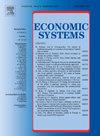环境税会使政府腐败吗?
IF 3.3
2区 经济学
Q1 ECONOMICS
引用次数: 0
摘要
在本研究中,我们考察了四种环境税(碳税、能源税、资源税和运输税)对两个反腐败指数(控制腐败指数[CC]和清廉指数[CPI])以及第三个指数,政治腐败指数(PCI)的影响,从而揭示了实施环境税是否会导致政府腐败加剧的问题。我们的假设是,受环境税影响的企业可能会通过一些腐败的做法和行为来弥补或逃避收入损失。从2002年到2020年,我们对111个国家和两个子样本(45个高收入国家和66个低收入和中等收入国家)的全球样本进行了丰富的实证分析。大多数环境税对CC和CPI有显著的正向影响,而对PCI有显著的负向影响,这意味着环境税似乎增加了反腐败指数。我们还讨论了环境税对腐败影响的可能渠道:一般政府支出、收入、利润和资本利得税。因此,我们发现了大量有趣的发现,这些发现对多次二次测试都是可靠的。本文章由计算机程序翻译,如有差异,请以英文原文为准。
Do environmental taxes corrupt governments?
In this study, we examine the effects of four environmental taxes (taxes on carbon, energy, resources, and transport) on two indices of anti-corruption (the Control of Corruption Index [CC] and the Corruption Perceptions Index [CPI]) and a third index, the Political Corruption Index (PCI), shedding light on the question whether the implementation of environmental taxes leads to more government corruption. Our hypothesis is that firms that are affected by environmental taxes may compensate for or evade the loss of revenue through some corrupt practices and behaviors. We conduct a rich empirical analysis for a global sample of 111 countries and two subsamples (45 high-income countries and 66 low- and middle-income countries) from 2002 to 2020. Most environmental taxes have significant positive effects on CC and CPI, while they have negative effects on PCI, implying that environmental taxes appear to increase anti-corruption indices. We also discuss the possible channels for the effects of environmental taxes on corruption: general government expenditure, and taxes on income, profits, and capital gains. Accordingly, we uncover a plethora of interesting findings that are robust to multiple secondary tests.
求助全文
通过发布文献求助,成功后即可免费获取论文全文。
去求助
来源期刊

Economic Systems
ECONOMICS-
CiteScore
4.90
自引率
0.00%
发文量
83
审稿时长
48 days
期刊介绍:
Economic Systems is a refereed journal for the analysis of causes and consequences of the significant institutional variety prevailing among developed, developing, and emerging economies, as well as attempts at and proposals for their reform. The journal is open to micro and macro contributions, theoretical as well as empirical, the latter to analyze related topics against the background of country or region-specific experiences. In this respect, Economic Systems retains its long standing interest in the emerging economies of Central and Eastern Europe and other former transition economies, but also encourages contributions that cover any part of the world, including Asia, Latin America, the Middle East, or Africa.
 求助内容:
求助内容: 应助结果提醒方式:
应助结果提醒方式:


